The short answer: Yes. Gutting a deer without gloves can make you sick, but not necessarily in the ways you’d expect. Here’s a look at what you need to consider when it comes to making the cut, and the impact the gutting and butchering chore can have on your body.
Dealing with Allergies
The most obvious perils are allergies. The Oxford Dictionary defines an allergy as “a damaging immune response by the body to a substance, especially pollen, fur, a particular food, or dust, to which it has become hypersensitive.”
I hunted with a guy who was allergic to deer blood. Thinking it was just his way of trying to get me to field dress a deer for him, I laughed and urged him to get to work because we were running out of daylight. But as I watched his physical reactions as he got closer to the deer, and how tentatively he began, it was obvious he hadn’t been joking, so I took over.
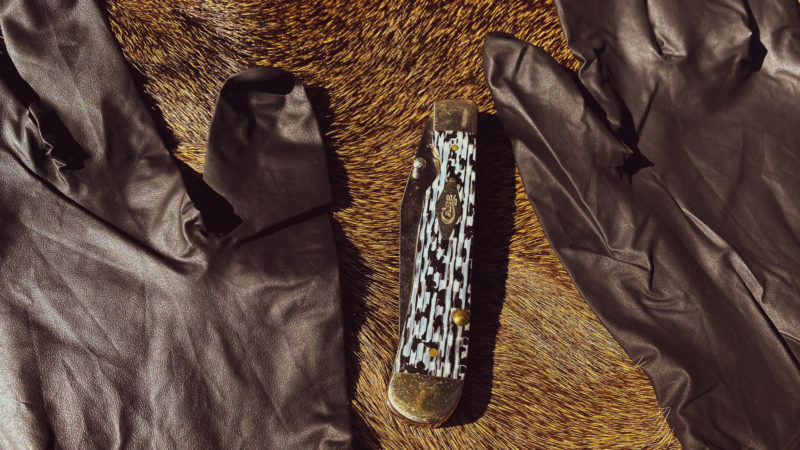
For someone like him, forgetting to pack a pair of field dressing gloves (which he did that day) can be a critical mistake. He first learned of the allergy when he was a teenager and killed his first deer while hunting alone. He gutted the deer and washed up in the creek near where the deer had died. His hands were red and tingly, and he soon noticed a blotchy rash all over his hands up to his elbows.
Fortunately, Benadryl cleared up the rash and no other medical attention was necessary. He didn’t think much of it until the same thing happened next time he gutted a deer, and that’s when he realized he was allergic to the blood.
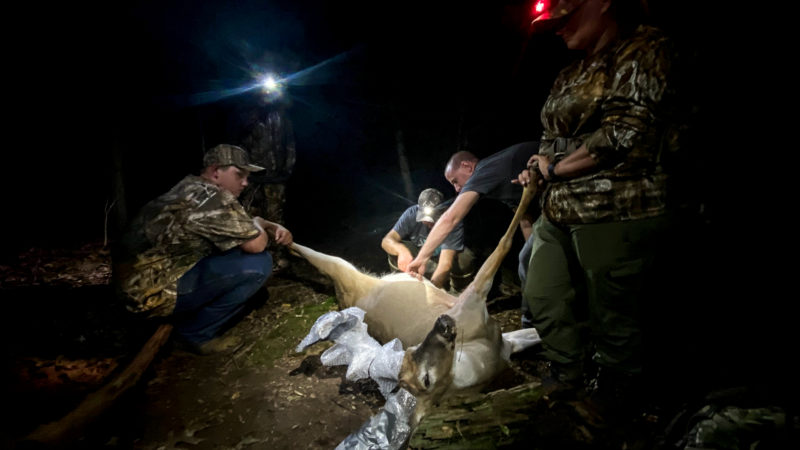
According to WebMD, approximately 30% of adults in the United States have allergies. Of course, the number of hunters who are allergic to the animals they pursue is much smaller. But it happens. In fact, one person who comes to mind who had a deer allergy is Dan Schmidt, the editor of Deer & Deer Hunting magazine. According to his blog, Whitetail Wisdom, Schmidt’s standard protocol for hunting season was to take allergy medication, wear a facemask, and wear shoulder-length rubber gloves when field dressing a deer.
In recent years, Schmidt has found that he’s no longer allergic to deer, which is pretty common, too. People often overcome allergies as they get older. Sometimes, it’s simply the introduction to a new allergen that causes the reaction, and once your body builds up immunity to it, you no longer experience any problems.
A 1987 study by the University of Wisconsin followed 12 hunters who were known to have allergies. The study concluded that these hunters also showed a sensitivity to deer hair, saliva, blood, or urine. According to the study, “Most of the hunters suffered congestion, hives, asthma, sneezing, runny noses and swollen eyelids and lips, but one was a state deer checker who went into allergic shock after cutting his hand on a tag he placed on a deer. The man recovered.”
As a general rule, folks who have pre-existing allergies to pollen, dog or cat dander, etc., are most likely to have an allergy to deer blood, saliva, hair, or urine. So if you have allergies to any of those things mentioned, it’s better to take the necessary precautions to prevent a reaction.
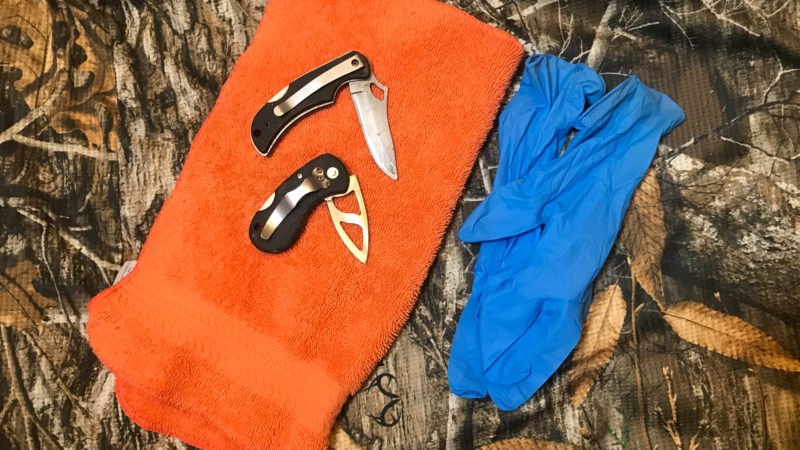
Ticks and Diseases
Sometimes allergies can be the least of your worries. You cannot get Lyme’s disease from blood or meat, but wearing shoulder-length gutting gloves does help prevent ticks from clinging to your clothing. They’re much easier to spot on the glove material than on your actual hunting clothes, too.
In fact, dozens of potential parasites can live on a single whitetail, some of them too small to be visible without a microscope. Also, although EHD (epizootic hemorrhagic disease) and CWD (chronic wasting disease) are not known to be harmful to humans, do you really want to take that chance and not use field dressing gloves? If you have the option, it just makes sense to wear them.
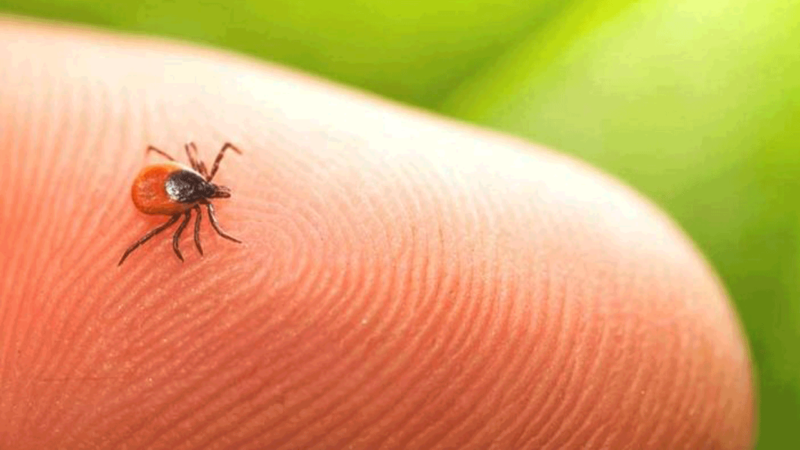
Accidents Happen
Cuts can happen while field dressing animals, too. Several times, I’ve slipped with the knife and my gutting gloves, which are made of a slightly thicker rubber than latex gloves, took the brunt of the cut and saved my fingers. But even thin latex is better than nothing.
I worked in a taxidermy shop for 25 years and skinned literally thousands of animals, everything from squirrels to black bears. I also trapped heavily throughout my teens, often catching over a hundred raccoons and dozens of muskrats, fox, and coyotes each season. Needless to say, I was good with a knife. And I still had slip-ups on occasion, a moment of lapsed concentration or carelessness, and next thing I knew I was bleeding. Rather than address the wound immediately, I often pushed on to finish the task first, and more than once I came very close to paying a huge price.
One particular instance comes to mind. What started as just a small nick on the corner of my thumbnail, just enough to draw blood but not appear serious, blossomed into a puffed up, tender hot spot of pain within a few days. It throbbed to the point I couldn’t sleep. Finally, I was visiting a friend’s brother who was a doctor and he looked at my thumb. I’ll never forget the look on his face. He suggested I get to the Emergency Room right away unless I wanted to lose my thumb.
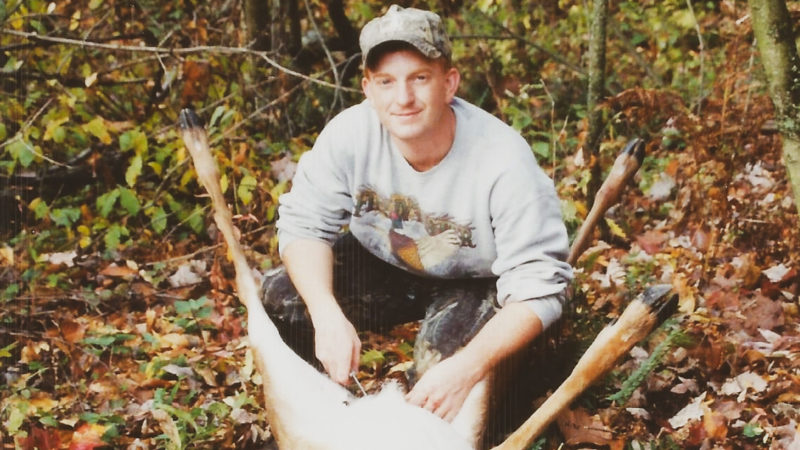
It’s scary how something so innocuous, when left untreated, can turn serious so quickly. And it always happens when you least expect it, or when you take things for granted.
Handling rotted or tainted meat and skulls is an especially dangerous prospect. Many hunters today enjoy displaying European-style skull mounts and doing the work themselves. Just remember, as soon as an animal expires, bacteria begins to form, and that growth accelerates as the meat decomposes. Some of that bacteria can be dangerous and even fatal in instances where it enters a human’s bloodstream.
Just ask Remi Warren, an outdoor personality known for his appearances on Solo Hunters, Apex Predator, and MeatEater, among others. While sawing the antlers off of a tainted elk skull, the blade scraped his thumb. Although it barely bled, and he washed it after completing the task, he woke up several days later to a thumb that was swollen and purple, and he could barely lift his arm. A trip to the Emergency Room confirmed that it was blood poisoning and had reached his lymph nodes, and it took two days of antibiotic IV and two more weeks of medications to get the infection under control.
Conclusion
Any time you’re dealing with wild animals, you’re dealing with things you cannot control. You don’t know where that animal has been, what it has been exposed to, or how you’ll react when coming into contact with it. Any number of things can make you sick when gutting deer without gloves, from the obvious allergic reactions to the blood to harmful bacteria entering your bloodstream. But in all situations, a few precautions and a good pair of gloves, can reduce the risks and keep you hunting.

 By
By 



